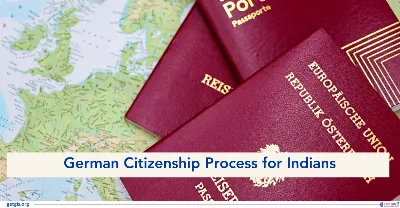CELPIP vs IELTS Language Tests: What Indian Students Should Know in 2025
Updated On
-
Copy link
When it comes to demonstrating English proficiency, there is a major concern in choosing CELPIP vs IELTS. Read the entire and make a final decision.
Limited-time offer : Access a free 10-Day IELTS study plan curated for you

Table of Contents
- CELPIP vs IELTS Language Tests: Key Differences
- CELPIP vs IELTS Language Tests: Which is Better?
- CELPIP vs IELTS Test Format
- CELPIP vs IELTS: Scoring
- CELPIP vs IELTS: Test Duration
- CELPIP vs IELTS: Test Availability
- CELPIP vs IELTS: Test Preparation
- Is CELPIP tougher than IELTS?
- CELPIP vs IELTS: Top 10 Accepted Countries List in 2025
- Explore the World Beyond Borders with GetGIS!
When it comes to demonstrating English proficiency, there is a major concern in choosing CELPIP vs IELTS language test for immigration, work, or study purposes. In this article, we will provide a detailed comparison of CELPIP vs IELTS to help you make an informed decision based on your specific needs and requirements.
CELPIP vs IELTS Language Tests: Key Differences
CELPIP is a computer-based exam and used mainly for immigration to Canada. While the IELTS test is most preferred for wider recognition in countries.
Let's take a look at the other differences between CELPIP vs IELTS language test as it's important to understand that both of these tests serve as proficiency assessments for pursuing immigration.
|
Aspect |
CELPIP |
IELTS |
|
Full Form |
Canadian English Language Proficiency Index Program |
International English Language Testing System |
|
Conducting Body |
Paragon Testing Enterprises |
IELTS IDP India |
|
Test Types |
- CELPIP General: For PR applications, professional designations - CELPIP General LS: For citizenship, professional designation |
- IELTS Academic: For higher education, professional registration - IELTS General Training: For migration to English-speaking countries |
|
Test Focus |
Canadian English |
International English (Academic & General) |
|
Test Format |
Computer-based only (in test centre) |
Computer-based and paper-based (wider choice) |
|
Cost (2025) |
CELPIP General: $280 + taxes CELPIP General LS: $195 + taxes |
IELTS (Academic & General): INR 17,000 |
|
Skills Assessed |
Reading, Writing, Listening, Speaking |
Reading, Writing, Listening, Speaking |
|
Test Content |
Practical Canadian scenarios; focus on daily tasks (e.g., describing Canadian landscapes, replying to voicemails) |
Academic and/or general topics depending on version |
|
Speaking Section |
Multiple short tasks via computer (recorded responses) |
Face-to-face interview with examiner |
|
Test Availability |
Limited test centres in India (expanding globally, but still fewer than IELTS) |
Extensive network of test centres across India and worldwide |
|
Test Duration |
CELPIP General: 3 hours (single sitting) CELPIP General LS: 1 hour (single sitting) |
IELTS: 2 hours 45 minutes (both Academic & General) |
|
Preparation Material |
Official practice tests and materials available, but fewer than IELTS |
Abundant prep materials, books, courses, and online resources |
|
Test Recognition |
Recognised by IRCC, Canadian universities, colleges, vocational programs, PGWP, citizenship, PR, and professional registration |
IELTS Academic: For study worldwide IELTS General: For migration worldwide |
|
Scoring System |
Points-based: 1–12 per skill (9 is the minimum for most PR streams; 12 is the highest) |
Band score: 0 (no user) to 9 (expert user) |
|
Score Validity |
2 years |
2 years |
CELPIP vs IELTS Language Tests: Which is Better?
Although, CELPIP vs IELTS is an unfair comparison because IELTS is an English language requirement utilized across the world including Canada. The CELPIP exam is only recognised in Canada. However, the test of your choice depends on your requirements. IELTS is the better option as it caters to multiple destinations
|
Why Consider the CELPIP Test? |
Why Consider the IELTS Test? |
|
Candidates who are looking for Canadian immigration must opt for CELPIP |
Candidates who are looking to take a test that is accepted globally for various study or immigration options |
|
Candidates who prefer any computer-based exam with a strong focus on everyday Canadian English |
Candidates who are ok with the traditional pen-and-paper or computer based format with a face-to-face speaking test should definitely opt for IELTS |
|
Candidates who do not have any problem short and task-based speaking sections |
Students looking to get an ample preparation resources in India must opt for IELTS |
Are you planning to Immigrate to Canada for a bright future. Not sure when and how to start. Read this blog where we have explained the 10 Best Benefits of Canadian Permanent Residency for an Indian.
CELPIP vs IELTS Test Format
The CELPIP and IELTS test focuses primarily on Canadian English and both of these test consists of 4 components: Listening, Speaking, Reading, and Writing. Refer to the table below to understand the test format and components
|
Feature |
CELPIP |
IELTS |
|
Focus |
Canadian English, Canadian accents, and scenarios. |
British English foundation, but covers global English variations. |
|
Skills Tested |
Listening, Speaking, Reading, Writing. |
Listening, Speaking, Reading, Writing. |
|
Modules |
Single test format: - CELPIP General (PR, work, study) - CELPIP General LS (citizenship). |
Two modules: - IELTS Academic (study, professional registration) - IELTS General Training (migration, work). |
|
Test Format |
Entirely computerized; all sections taken on a computer at a test centre. |
Paper-based or computer-based for Listening, Reading, Writing; Speaking is face-to-face with an examiner. |
|
Test Content |
Practical, everyday Canadian scenarios and tasks. |
Academic and general topics; international context. |
|
Spelling/Instructions |
Multiple-choice format with drop-downs reduces spelling errors. |
Requires precise spelling, especially on paper-based test. |
|
Test Availability |
Limited test centres, mainly in Canada and select locations abroad. |
Wide global availability, extensive network in India and worldwide |
CELPIP vs IELTS: Scoring
IELTS uses a band scoring system for each section of the test, While CELPIP applies a score for each section of the test and use bands scoring. Here are the brief highlights of CELPIP vs IELTS Score
|
Feature |
CELPIP |
IELTS |
|
Scoring Scale & Range |
1 to 12 for each component (Listening, Reading, Writing, Speaking) |
0 to 9 band scale for each component (Listening, Reading, Writing, Speaking) |
|
Overall Score |
Average of the four component scores |
Average of the four component band scores (rounded to nearest half or whole band) |
|
Evaluation Criteria |
Pronunciation, vocabulary, grammar, content, coherence, relevance, task fulfillment |
Accurate, fluent ,flexible resource, grammatical range, pronunciation, task achievement |
CELPIP vs IELTS: Test Duration
The CELPIP and IELTS tests have different durations and structures. Below is a detailed comparison of their time allocations.
|
Aspect |
CELPIP |
IELTS |
|
Test Type |
General English proficiency (for PR, work, citizenship) |
Academic or General Training (for study, migration, work) |
|
Total Duration |
Approximately 3 hours (in one sitting) |
2 hours 45 minutes (Speaking may be scheduled separately) |
|
Section Duration |
- Listening: 47–55 minutes - Reading: 43–60 minutes - Writing: 53–60 minutes - Speaking: 15–20 minutes |
- Listening: 30 minutes - Reading: 60 minutes - Writing: 60 minutes - Speaking: 11–14 minutes |
|
Additional Notes |
- All sections completed in a single sitting at a test centre - 10-minute break between Listening and Speaking - Computer-based only |
- Listening, Reading, Writing are completed in one sitting - Speaking can be up to a week before or after other sections - Paper-based or computer-based options |
CELPIP vs IELTS: Test Availability
IELTS and CELPIP offers test dates throughout the year, providing candidates with more flexibility in choosing their preferred testing time
|
Aspect |
CELPIP |
IELTS |
|
Test Center Locations |
Over 140 locations across Canada and select international cities including USA, India (Delhi, Mumbai, Chandigarh, Ahmedabad, etc.), Germany, New Zealand, Ireland, South Africa, Brazil, Mexico, Thailand, and more |
Over 1,600 test locations in more than 140 countries worldwide, including extensive coverage in India and globally |
|
Acceptance |
Widely accepted by Canadian immigration authorities (IRCC), Canadian universities, colleges, vocational programs, and professional bodies |
Recognized by many immigration departments, educational institutions, and professional organizations worldwide for study, work, and migration |
|
Test Dates |
Multiple test dates available every month in India and internationally; frequent sittings in major cities like Delhi, Mumbai, Chandigarh, Ahmedabad, etc. |
Approximately 4 test dates monthly and 48 fixed test dates annually in India and worldwide |
CELPIP vs IELTS: Test Preparation
Both CELPIP vs IELTS is a language requirement test that features Canadian topics about everyday life, making it easier for some. In contrast, IELTS covers more international topics. More reasons for this are detailed below.
|
Aspect |
CELPIP |
IELTS |
|
Official Study Materials |
Offers official study materials including online practice tests, study guides, ebooks, online courses, and preparation tips. Materials are available for purchase on the official CELPIP website. |
Provides official practice materials, including sample tests, preparation books (e.g., Cambridge IELTS series), and online courses. Materials can be purchased online and through authorized retailers. |
|
Free Resources |
Provides free sample tests, guidebooks, webinars, and online practice tests to help candidates understand the test format and expectations. |
Offers free sample questions, practice tests with answer keys in ebooks, and full-length online mock tests for both Academic and General Training modules |
Is CELPIP tougher than IELTS?
Considering which exam is easier, IELTS or CELPIP test focuses on Canadian topics based on individual preferences and strength. Thinking that one test might be easier than the other is a complete myth.
Here is a quick comparison between CELPIP and IELTS for which is easier
|
Feature |
CELPIP |
IELTS |
|
Recognized |
Tailored for Canadian English and everyday communication; widely accepted by Canadian immigration authorities (IRCC), and various Canadian academic and professional institutions. |
Globally recognized, accepted by educational institutions, immigration authorities, and professional organizations worldwide. |
|
Focus |
Real-life situations and Canadian context; assesses practical English for daily life, work, and citizenship in Canada. |
English usage in both academic and general contexts, with an international scope; includes academic and migration pathways. |
|
Content |
May be slightly easier for some due to familiar Canadian content and North American accents; focuses on everyday scenarios and tasks relevant to Canadian society. |
Diverse content, covering a wide range of topics and vocabulary, including academic, professional, and general English; uses a variety of English accents (British, Australian, North American |
CELPIP vs IELTS: Top 10 Accepted Countries List in 2025
Both CELPIP and IELTS scores are accepted in various countries. The following list highlights the top 10 countries that recognize these tests for immigration, study, or work purposes:
- Canada
- United Kingdom
- Australia
- New Zealand
- United States
- Ireland
- Germany
- Singapore
- France
- Netherlands
Explore the World Beyond Borders with GetGIS!
GetGIS (Global Immigration Service) is a user-friendly platform that empowers individuals to explore the world beyond borders and embark on their immigration journey with confidence. With comprehensive resources and personalized assistance from experienced immigration experts.
Our dedication extends to offering a comprehensive solution that spans the entire spectrum – from language proficiency training encompassing IELTS, CELPIP, and PTE to providing post-landing services that accompany you even after you've reached your destination.
Book Your Free Consultation with GetGIS and open the gates of opportunities abroad.
Limited-time offer : Access a free 10-Day IELTS study plan curated for you

Frequently Asked Questions
Which is better CELPIP or IELTS?
Is the CELPIP score equivalent to IELTS?
Is CELPIP accepted for PR?
Is 7 a good score in CELPIP?
Is CELPIP harder than IELTS?





